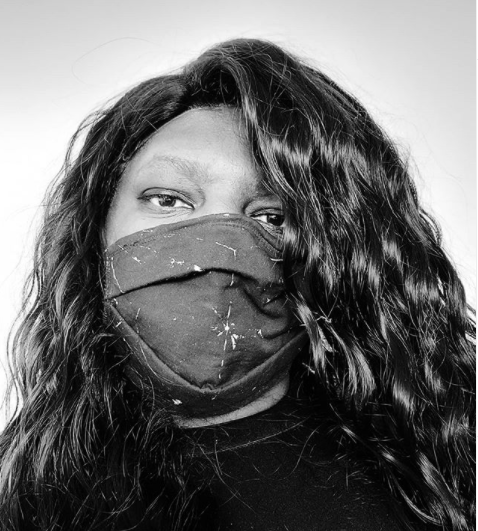Backxwash has won the 2020 Polaris Music Prize for her gothic rap-metal album God Has Nothing to Do With This Leave Him Out of It.

The recording by the Montreal-based artist was selected by an 11-member jury as the Canadian album of the year based on its artistic merit. The recognition carries with it a $50,000 cash prize.
Backxwash is the first transgender female artist to win the Polaris, an award that in recent years has celebrated an array of Indigenous and Black musicians who are often ignored in mainstream Canadian music. Previous winners include Haviah Mighty, Jeremy Dutcher and Kaytranada.
“My existence itself is political, my livelihood is political, and the livelihood of my sisters is political,” she said while accepting the prize.
“We just want rights, and we have to go through so many hurdles to do that, and I feel very connected to that struggle.”
READ MORE: Polaris Music Prize 2020 long list: The Weeknd, Jessie Reyez, Daniel Caesar among artists
Backxwash, the stage name of performer Ashanti Mutinta, drew from her own experiences with faith, family and her queer identity growing up in Zambia to create the dynamic reflection of self.

Get breaking National news
“This (album) is the most of myself that I’ve been ever since I started living on this earth,” she said by webcam from Montreal.
“I think it’s very symbolic, the world just kind of telling me to be myself.”
She beat out nine other contenders, including First Nations indie rockers nehiyawak, three-time Polaris shortlisted U.S. Girls and R&B-pop singer Jessie Reyez.
Three other nominees this year were previous winners, electronic composer Caribou, DJ and record producer Kaytranada and singer-songwriter Lido Pimienta.

The Polaris was presented this year with a “cinematic” broadcast that replaced the usual gala concert showcase held at Toronto’s Carlu event space. Organizers commissioned a group of directors to bring each of the 10 nominated albums to life as short films.
God Has Nothing to Do With This Leave Him Out of It stood out from the other competitors for the elements of horror woven into the lyrics, frequently evoking religious imagery.
The album uses distorted samples of metal legend Ozzy Osbourne performing in Black Sabbath, Led Zeppelin and “In Heaven” a song from David Lynch’s film “Eraserhead,” alongside pointed words about her life experiences.
“The first time I heard (the lyrics) out loud was me rapping,” she said.
“I was like, oh damn, that’s pretty dark… the lyrics come from a really deep place in me.”
Mutinta grew up in Zambia, making hip hop beats as a teenager before moving to British Columbia to live with her brother and sister at 17 years old. She set aside music to focus on a computer science degree, before a move to Montreal reinvigorated her love for live music.
“I fell in love with the city, and just, it was a perfect city to express myself,” she said.
“So I started to express myself from a gender standpoint and a music standpoint, and the two places just coincided well with the type of art that I was making.”
But unlike the threads of her music, Mutinta was beaming after learning of her win.
She supposed she would invest the money in her next album, which she describes as a horror anthology inspired by people from her life.







Comments
Want to discuss? Please read our Commenting Policy first.